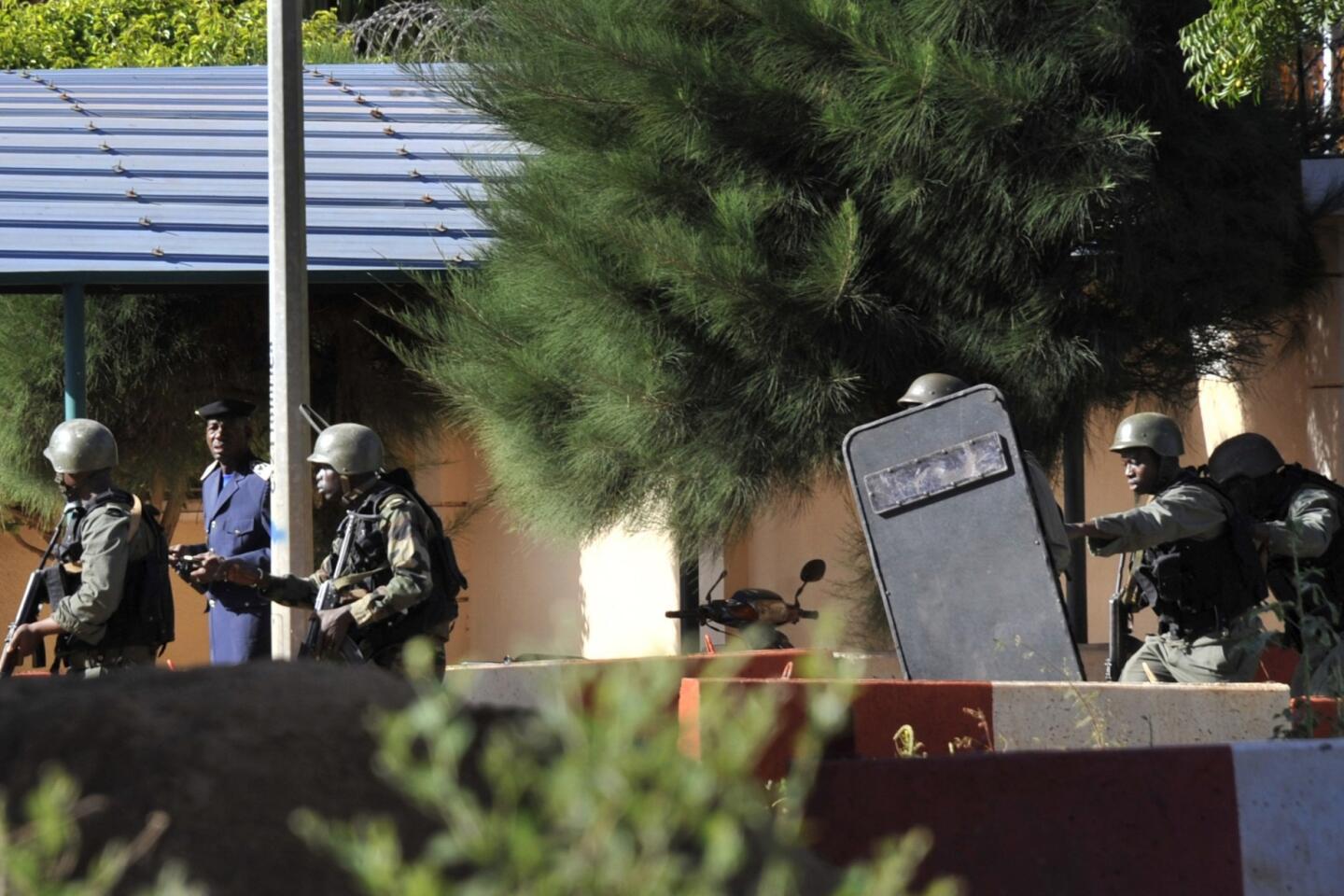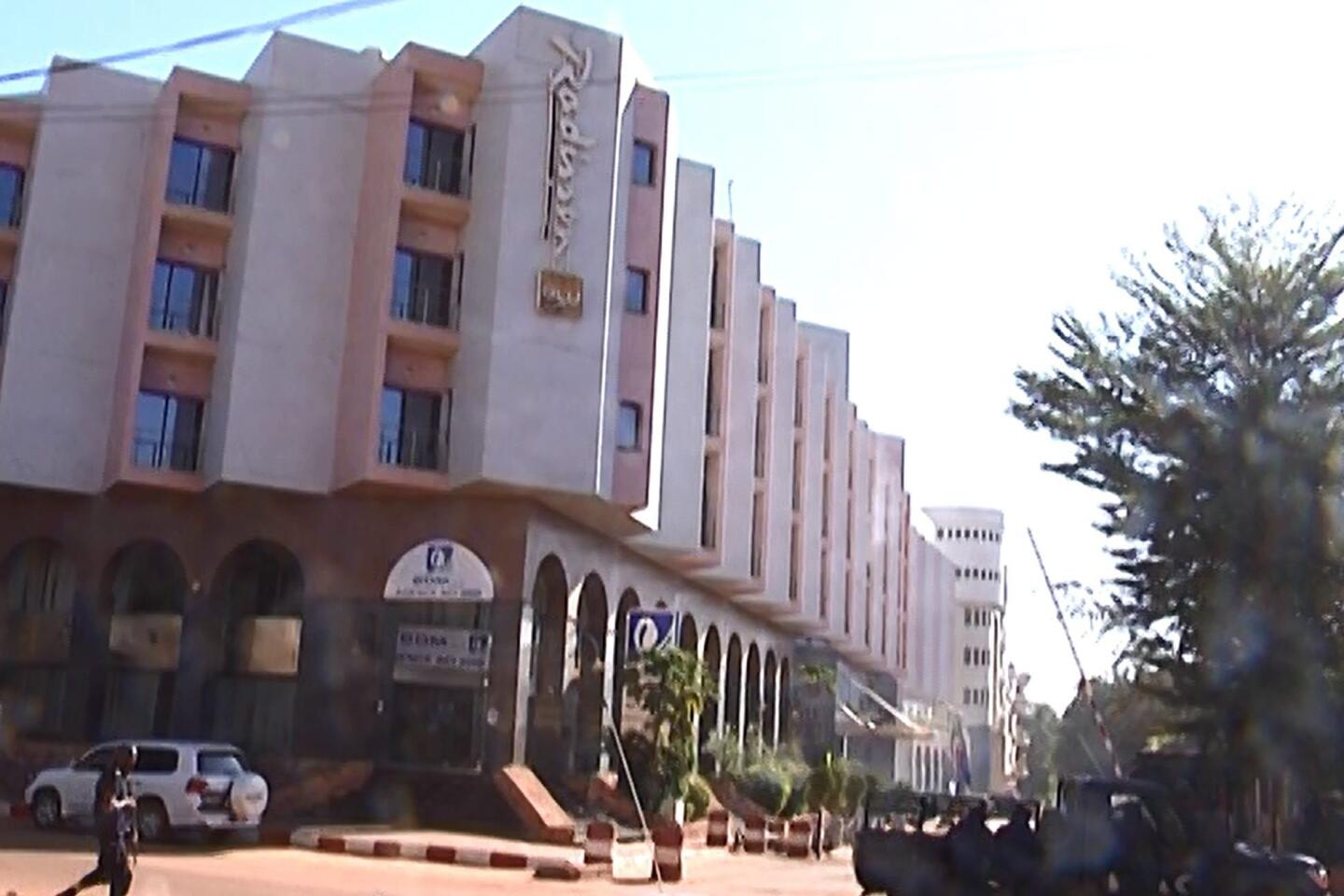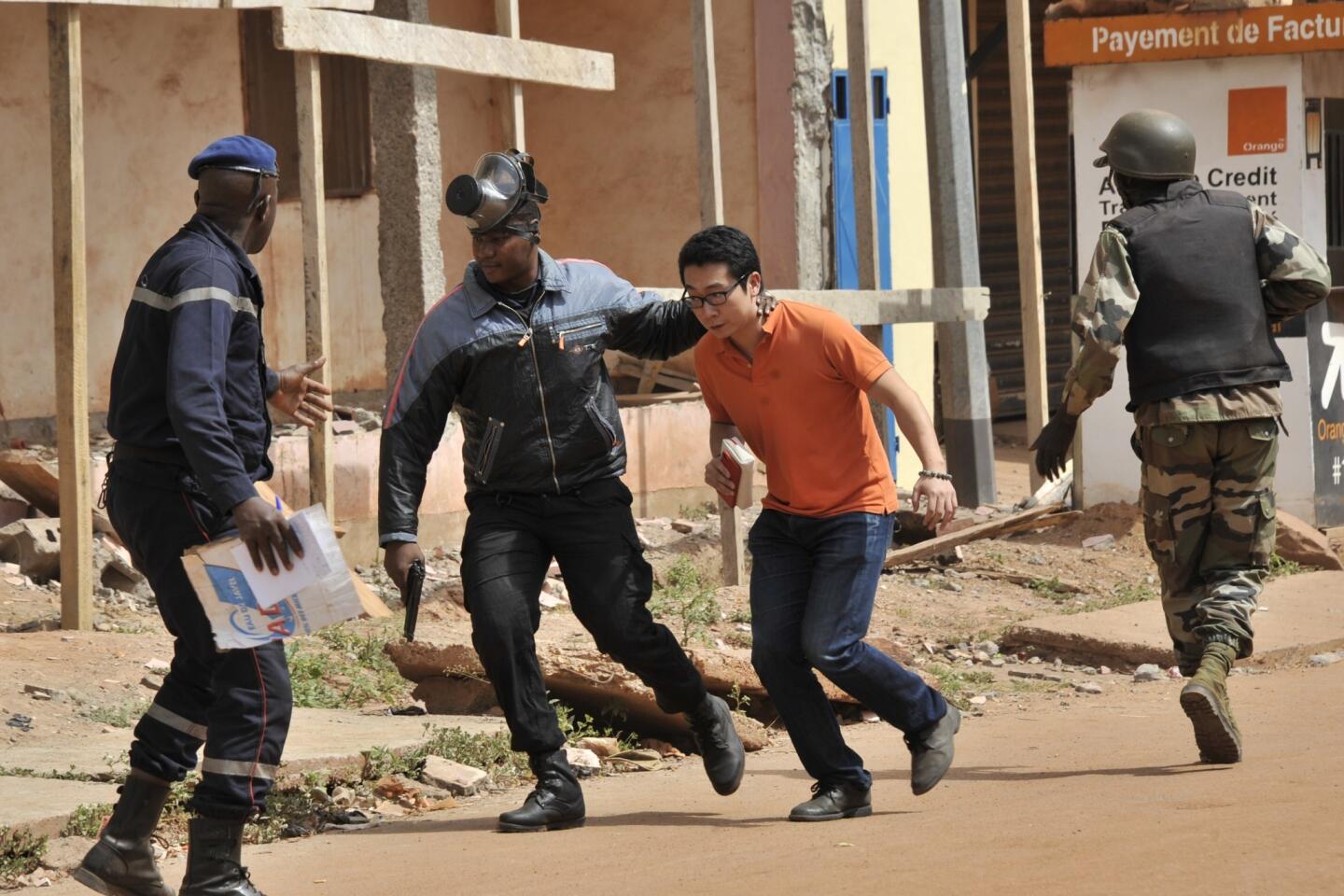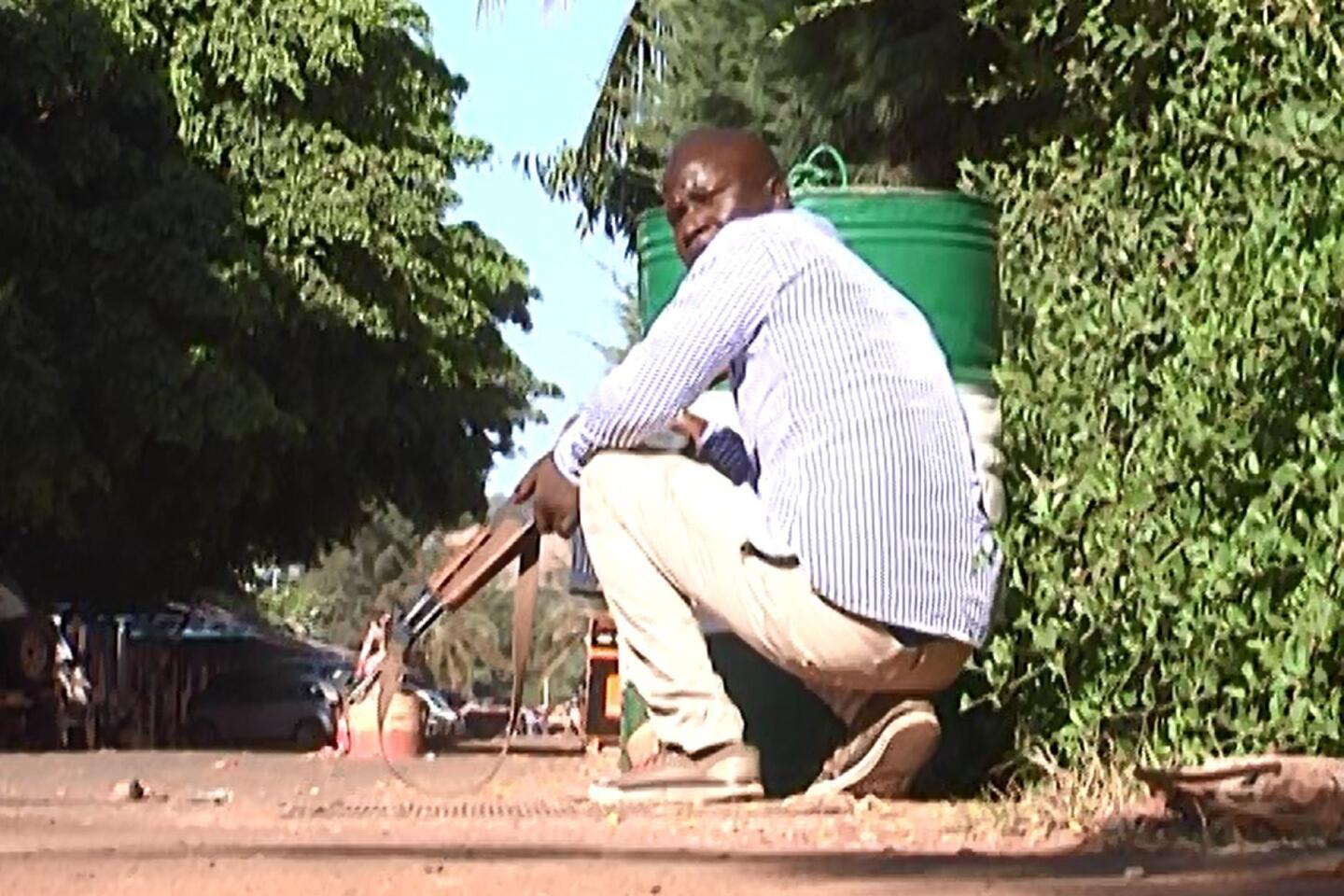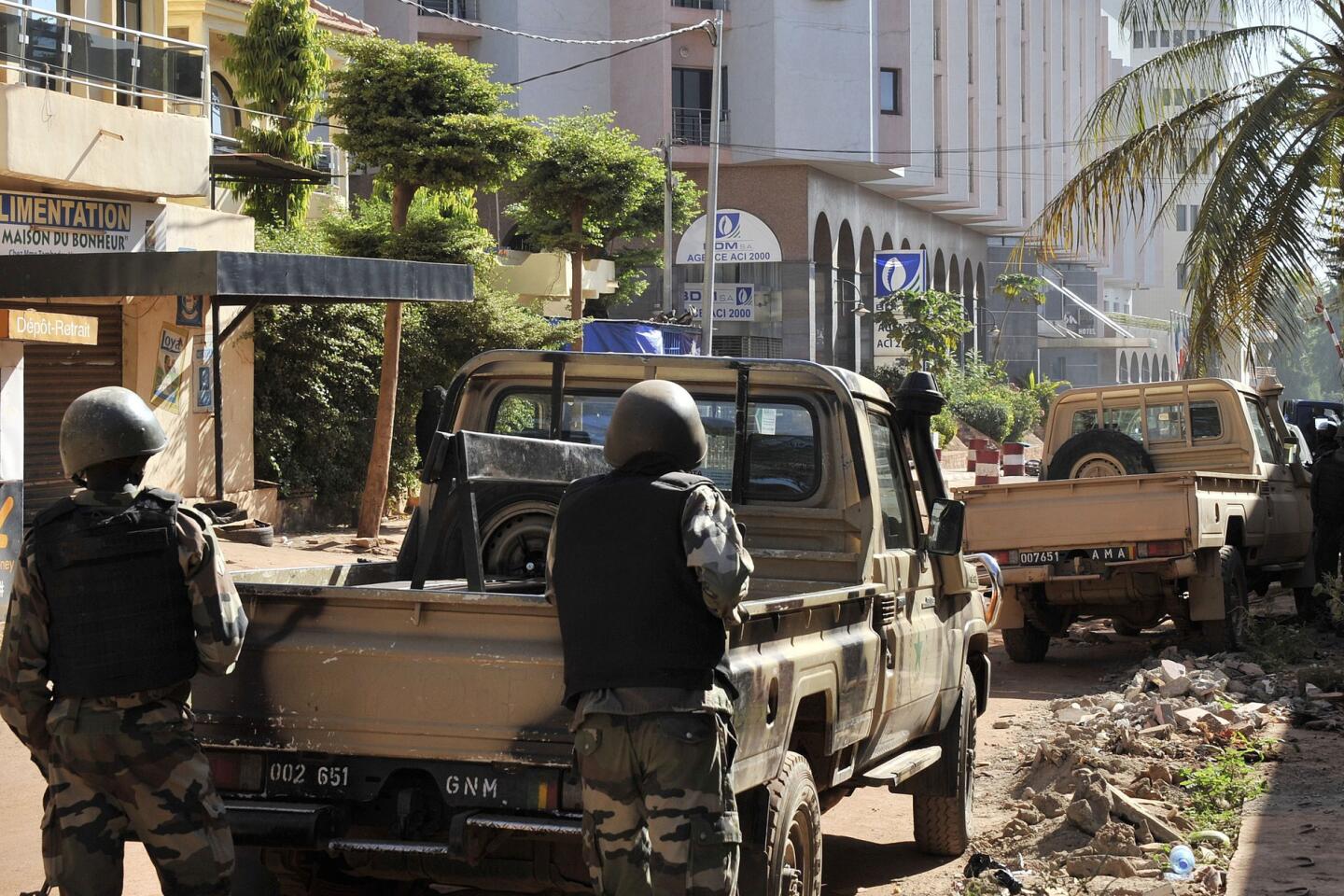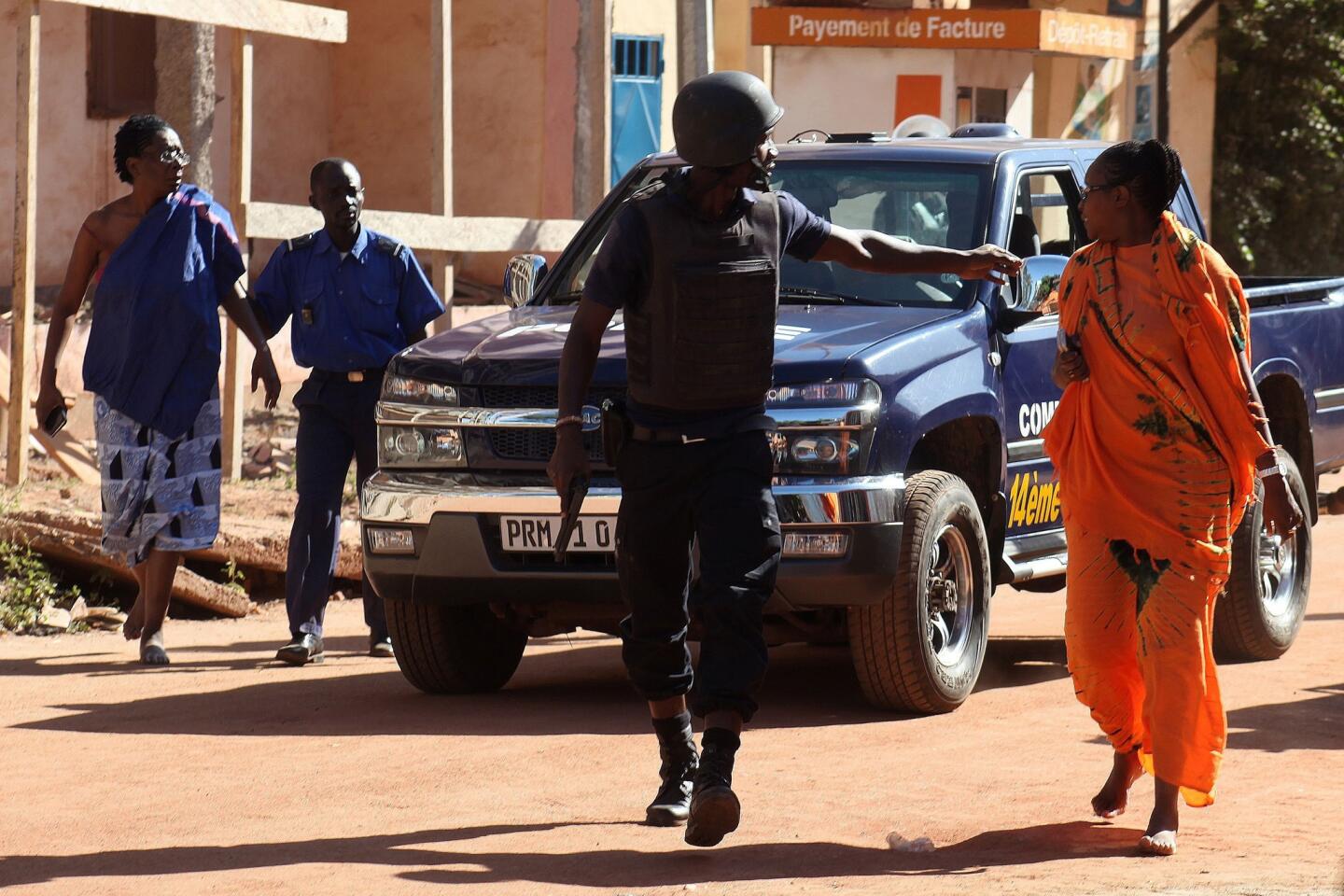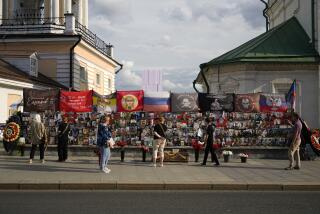A look at the roots of militant violence in Mali
Mali once again reeled Friday under a terrorist attack, the latest violence in a country that has been racked by war for more than half a century. The current battle pits a confusing array of at least five Islamist groups against a weak central government supported by the former colonial power, France, as the United Nations seeks a diplomatic solution and offers military protection in some areas.
The latest attack, on the Radisson Blu hotel in the Mali capital of Bamako, takes on a special urgency as France tries to deal from last week’s devastating Islamist militant violence that left 130 dead.
That attack was carried out by Islamic State, not known to be directly involved in Mali. But its supporters celebrated the Mali attack using the Twitter hashtags #IslamicState, #ParisIsBurning and #Mali_Is_Burning.
NEWSLETTER: Get the day’s top headlines from Times Editor Davan Maharaj >>
Whether Islamic State did more than just tweet is not known, though some believe that the group based in Syria and Iraq is at least a spiritual partner to the attackers in Africa. The attack could also be a sign that militant groups in northern Mali, until now mostly allied with Al Qaeda, may be switching their allegiance to Islamic State, a development that could worsen the threat to France.
The roots of Friday’s bloody attack can be traced to a nationalist rebellion in Mali’s north. Over the decades, the rebellion picked up steam, drawing support from several Islamist groups. Here is a guide to understanding Mali’s complicated history and violent present.
What is the history of the conflict?
The terrorist attack is the latest in a string of violence in the north of Mali, sparsely populated and ethnically different than the south. When France ended its colonial role in 1960, the new nation of Mali was formed out of both areas, but it was an uncomfortable fit.
According to the United Nations’ explanation of its military role, the north resented “the central control of the south area [with] deep-seated feelings among communities in the north of being neglected, marginalized and unfairly treated by the central government.” At least three rebellions featured the Tuareg, the Berber group in the north, seeking to set up a separate nation to be called Azawad.
What happened in the rebellions?
By 2012, there were several distinct groups operating in the north against the government. The National Movement for the Liberation of Azawad was joined by Islamist allies including Ansar Dine, Al Qaeda in the Islamic Maghreb and the Movement for Justice and Unity in West Africa, which called for the imposition of strict Islamic law.
Those groups attracted deserters from the Malian armed forces and were supported by well-armed combatants returning from fighting in Libya after longtime dictator Moammar Kadafi was toppled.
The rebellion in the north prompted a coup in the south where Mali soldiers seized the government and suspended the constitution. By April 2012, the northern rebels had seized the major cities of the north.
But tensions arose among the rebel groups, with the more strident Islamist ones driving out the Azawad movement. That meant that more than half of the country was in the hands of radical Islamic groups with ties to Al Qaeda. The new radical alliance began moving south to try and take the whole country.
What was the response of the West?
By early 2013, France intervened, arguing in part that the Islamists were a direct threat to Europe because northern Mali could be used as a base for terrorism. The French launched Operation Serval, with 4,500 troops, swiftly driving militant groups out of the major cities, including Timbuktu.
What was the rebel response?
In response to the French attacks, Mokhtar Belmokhtar split off from Al Qaeda in the Maghreb and formed his own group, Al Mourabitoun. The new group led other militants in an audacious attack, storming the Tigantourine gas facility in Algeria and taking 800 people hostage. At least 39 hostages were executed before the facility was recaptured by Algerian forces. The government killed 29 members of the Mourabitoun.
Who is Belmokhtar?
Belmokhtar claimed responsibility for Friday’s attack on the Radisson Blu. In a recorded statement carried by Al Jazeera, the group said it wanted fighters freed from Mali’s prisons and for the government and Western attacks against the north to stop. The statement issued Friday said the Mourabitounes had attacked in coordination with the “Sahara Emirate,” the local group affiliated with Al Qaeda.
Born in northern Algeria, Belmokhtar, also known as Khaled Abou El Abbas, reportedly fought in Afghanistan in 1991 against the government supported by the former Soviet Union. He also reportedly fought for an Islamist group in Algeria before joining and leaving Al Qaeda in the Maghreb. He was twice convicted of terrorism and sentenced to death in absentia by Algerian courts.
Is Islamic State involved?
That is one of the West’s biggest fears, that widely separate terrorist groups might be pooling resources and that France may become a target at both ends. Friday’s attack came amid French fears that Al Qaeda in the Maghreb and Ansar Dine may pledge allegiance to Islamic State. There are also reports that an Islamic State envoy traveled to northern Mali recently for meetings with leaders of several terror groups.
The Movement for Justice and Unity in West Africa, the groups that want to impose strict sharia law, reportedly declared allegiance to Islamic State in May, several months after Nigerian militant group Boko Haram allied with Islamic State. Another local group, the Macina Liberation Front, which emerged early this year, has been implicated in several recent attacks, including one on a hotel in central Mali in which 13 people died.
ALSO
Pentagon has increased military operations in Africa
China urges joint anti-terror efforts, but reveals little about attacks on its soil
France seeks help in thwarting extremists; 3rd body found in suspect’s apartment
More to Read
Sign up for Essential California
The most important California stories and recommendations in your inbox every morning.
You may occasionally receive promotional content from the Los Angeles Times.
